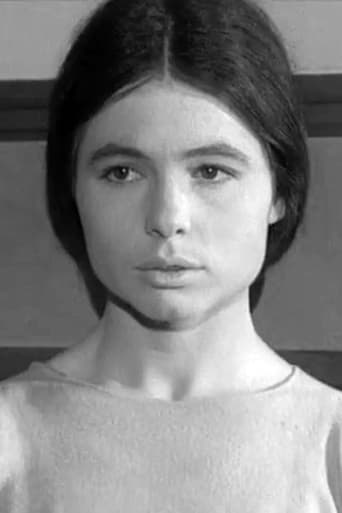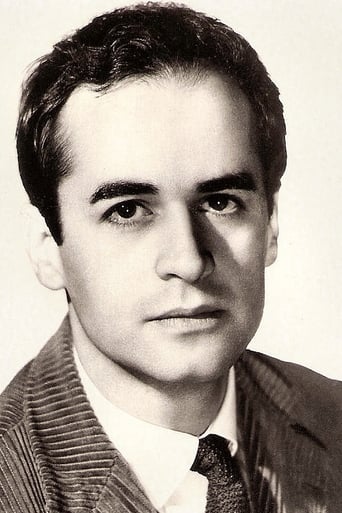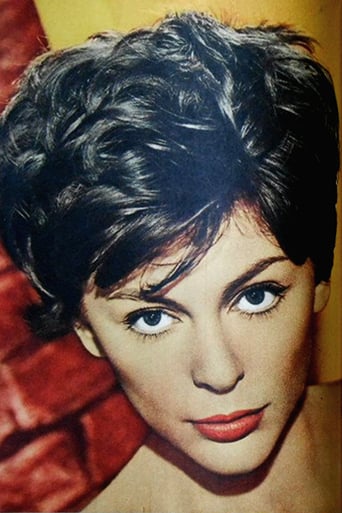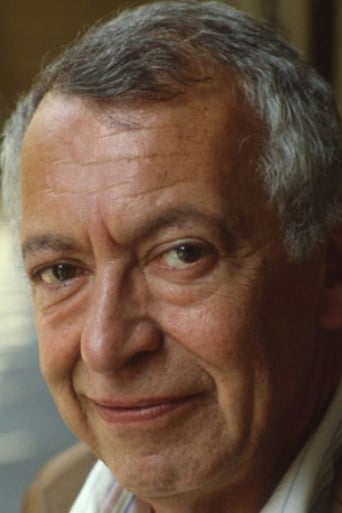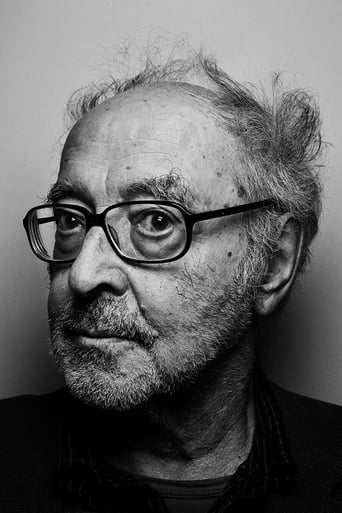Greg
A young woman becomes interested in a play director after a paranoid, greasy-haired man tells her that the director will die soon, but can explain no more. She becomes an actor in his play and meets his strange friends, including his unpleasant girlfriend. She also learns that he longs for a certain musical recording on which another mysteriously doomed man played guitar. She meets more and more people and keeps asking questions, and finally . . .I found this film completely vacuous. Vague talk of political conspiracies, assassinations, suicide, fascism, underground organizations, etc. without any ultimate clarity or purpose. A seemingly endless search for a missing tape recording that turns out not to be missing and which means nothing anyway. Characters have outbursts of emotion, but they feel false because nothing is ever really explained. And so on.. Basically a hundred forty one minutes of artistic masturbation. Spare yourself.
OldAle1
A few critics, noting Rivette's general lack of recognition in comparison with Truffaut, Godard, Rohmer and Chabrol, have wondered if his "late start" might have had anything to do with it; this film didn't have its American release until 1962 or a British premiere until 1964 by which point the New Wave was already a well-established "movement" in people's minds and this long 16mm talk-fest about conspiracies and theater must have looked weird and out of place even compared to the experimentation of Godard.I'm not so sure. Rivette's films have usually been hermetic worlds unto themselves, most readily relatable to each other and to the worlds of theater and other movies - apart from "La Religieuse" all of Rivette's work over his first 30 years of feature-making seem to inhabit what has been called his "House of Fiction", an area just a little off from the real world and one in which obsession, madness, and duration (at 140 minutes "Paris" is one of his shortest films) rule. Also his focus on the lives and romances of women and the near-exclusion of the kinds of macho American gangster-influenced characters that inhabit many of Godard's and Truffaut's early films wouldn't be likely to endear him to wider audiences. Interestingly enough, Rivette is just as obsessed with Americana as his contemporaries, and in fact the first words spoken in this film are in English, haltingly read aloud by a young woman in a tiny and somewhat decrepit apartment in Paris.Before this, as the credits roll, we see Paris, a grimy, silent and derelict-looking 19th-century city of endless 5 to 7 story apartments and wide but empty streets; our first view is from an unseen train, accompanied by eerie music heavy on wailing strings and percussion (by Phillippe Arthuys - the soundtrack is spare but frightening and beautiful throughout). A title, "June 1957" and we enter the world of Anne, our young reader, and her contemporaries, a lost and unfocused group of intellectuals, bohemians, actors and writers. Anne hears crying and screaming from an apartment next door - the young woman within seems both upset (in tears) and ecstatic - she know's Anne's brother, Pierre, who apparently is in danger from somewhere, something, somewhat - it is unclear - the same danger that "murdered" Juan, and before him Assunta. She has the look of excited madness as she claims that the whole world, in fact, is in danger. Anne is confused; she meets Pierre at a café, and he shrugs it off.Next we find Anne and Pierre both at a party, lots of mostly young intellectuals squeezed into another tiny apartment - a man plays guitar and the conversation revolves around this same Juan (who was also a guitarist, and composer), only it appears that he committed suicide -- or did he? We are also introduced to Philip Kaufman, apparently a famous American writer though he seems destitute and unhinged here. There are cameos by the director and Claude Chabrol, and the talk is charged and political, but direction-less. Snatches of conversation, withheld glances bespeak something going on, conspiracies and traitors and some evil that hangs over everyone...eventually Anne accompanies Philip on a long walk (filmed very much like a scene out of a hard-edged American noir) where he expounds on his own conspiracy theories. Everything it seems revolves around this Juan, and when Anne falls in with a troupe of actors rehearsing a seemingly impossible adaptation of Shakespeare's Pericles she finds out that the music to it was by Juan, but it is apparently lost.Gerard, the play's director, soon casts Anne as a replacement for one of his many departing actors; there is much made of people leaving and disappearing throughout the film, often for unsaid or unknown reasons. Anne and Gerard become romantically entwined also, but like most romances in the film it is ephemeral and unpredictable, and both have other entanglements. Eventually Anne takes it upon herself to find a tape of this music, which becomes the driving force of the latter half of the film, if this portrait of half-truths and romantic obsessions with dark powers and political intrigues can be said to have a real plot at all. It's a red herring, of course, much like the Maltese falcon, another homage to or parallel with the world of noir - in fact psychologically, if not plot-wise, this may be the most noirish of all the early New Wave films.I first saw Paris probably 15 years ago in the crappy old cut version available on VHS in the USA and this was my first re-watch, in the fine recent release from the BFI on Region 2 DVD. It's fascinating to return to it again after having seen nearly all of the director's subsequent work and to find that nearly all of his great themes and interests are present in this first feature made 50 years ago: complex romantic tangles, obsessions with conspiracies that may or may not exist, the city as playground, female friendships, theater - nearly all of Rivette's life's work can be found in nascent form here. One marked difference from everything that comes after is in the soundtrack, post-synchronized here, and this is rather unnerving when one is used to the direct sound that the director has mastered. Yet it works in Paris, the lack of street noises and the focus on individual voices and the eerie soundtrack music contributing to a view of the city as nightmarish, a place of loners and loneliness, of the permanent outsiders, of madness in the face of an obscure modern world. The last scene, as Anne's gaze wanders off following birds flying across the water, is emblematic too of this cryptic loner. Nothing is truly revealed, and more questions remain than were ever answered.A masterpiece, and for my money every bit as important as any of the other films from the dawn of the New Wave.
daniel charchuk
It's like the New Wave version of a mystery/conspiracy thriller, and in that regard it works really well. The black and white cinematography suits the tone perfectly, even if the very poor quality of the film makes it hard to tell, and it's supported by some disorienting editing and a great use of light and shadows. There's also a really terrific score, probably one of the best for this genre. Even though the film runs 140 minutes, it never really feels boring, as the conversations between characters are gripping enough to keep the viewer's interest. The story is rather strange, as it appears to be non-linear and occasionally irrelevant, but it seems to work out at the end. However, unfortunately, the end is a complete disappointment, as it attempts to hammer home some political viewpoints that just end up being confusing, and then coasts to a unsatisfactory finish without really tying up any of the loose ends. It's an interesting watch, and you could do a lot worse, but it's no masterpiece.
Christos Dimitrakakis (olethrosdc)
This is an unusual film. It revolves around a group of characters that are slightly connected to each other through their artistic tendencies and/or political beliefs. The group is presented well - it is quite realistic, even though it is so colourful. This is perhaps because the criteria for being part of the group are so 'normal'. Friends, people with similar interests.. acquaintance networks - this is something that is presented very well in the film.A sinister undercurent pervades the whole movie: a background plot that is never revealed, or shown directly - it is something that the characters speak to each other about and make reference to. While in other movies the conspiracy plot would have been the central theme, here it is pushed into the background, delegated to a simple object of discussion - the movie instead revolves around the lives of the characters and in particular, the protagonist's, from whose point of view the situation is seen. By bringing the focus onto the characters and their daily lives, illusions and aspirations, the movie manages to to breathe fresh life into what would have otherwise been just another conspiracy film.A few technical things: The acting is not very consistent. The parisian scenes were very good and the photography was aesthetically pleasing. The music enhanced the atmosphere significantly, though some of its psychedelic overtowns were a bit overpowering at points (making the dialogue hard to follow - if the intention was to transfer the confusion/paranoia to the viewer, it was appropriate, however).It's not a masterpiece, but it is definitely interesting and worth watching at least once.

